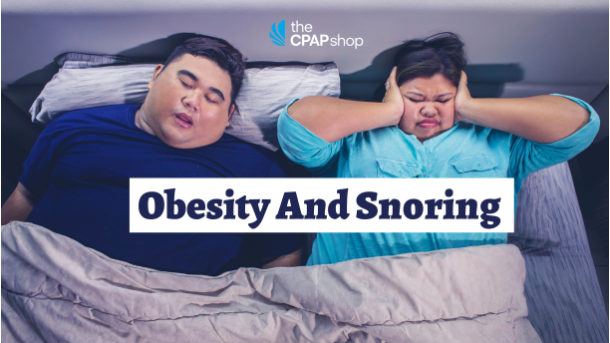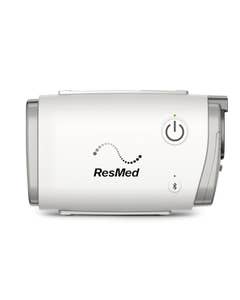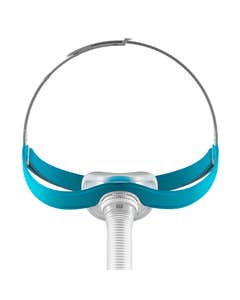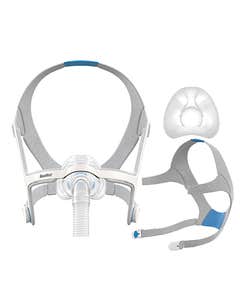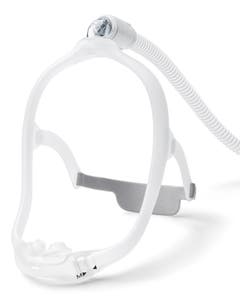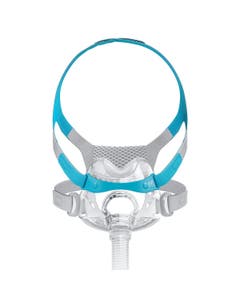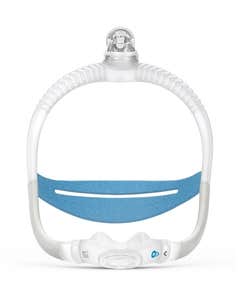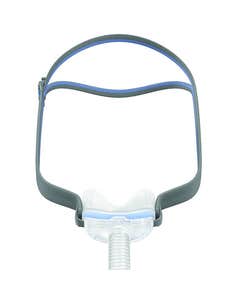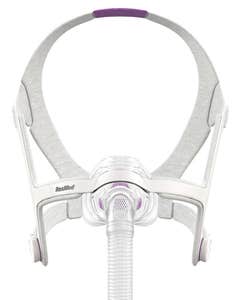Is There A Correlation Between Obesity And Snoring?
According to The Center for Disease Control, obesity has hit epidemic proportions with more than 25% of Americans being obese[1]. Obesity brings with it many health-related problems that can be controlled and reduced with proper rest and diet. One such problem is obstructive sleep apnea, a sleep-disordered breathing condition. Understanding obesity, improving one’s diet, and using a continuous positive airflow pressure (CPAP) machine can help one overcome obstructive sleep apnea.
Over-weight and Obesity
“Obesity is an excess proportion of total body fat. A person is obese when his or her weight is 20% or more above normal weight. The most common measure of obesity is the body mass index or BMI. A person is overweight if his or her BMI is between 25 and 29.9; a person is considered obese if his or her BMI is over 30.”[2] Individuals with a BMI of 40 or greater are considered morbidly obese.
“Obstructive sleep apnea was thought to be a disorder primarily of overweight, older men. But abnormal breathing during sleep can affect people of any age and either sex, and at least 30% of those affected are not obese.”[3]
When the body receives more calories than it can use, the body begins to store the calories for later use. For most eating too much and exercising too little leads to obesity. According to WebMD[2], the following factors also contribute to obesity:
Age – “As you get older, your body’s ability to metabolize food slows down and you do not require as many calories to maintain your weight.”
Gender – Changes, and conditions in the body differ across genders. For example, men burn more calories in a rest state, and women’s metabolism slows after menopause.
Genetics – “Obesity (and thinness) tends to run in families.”
Environmental factors – “Environmental factors include lifestyle behaviors such as what a person eats and how active he or she is.”
Physical activity – “Much of the increase in obesity in the last 20 years is thought to have resulted from the decreased level of daily physical activity.”
Psychological factors – “Many people eat in response to negative emotions such as boredom, sadness, or anger.”
Illness – “Hormone problems such as hypothyroidism (poorly acting thyroid slows metabolism), depression, and some rare diseases of the brain that can lead to overeating.”
Medication – “Certain drugs, such as steroids and some antidepressants, may cause excessive weight gain.”
How Can Snoring Lead to Obesity?
The Connection Between Brain and Body
Snoring may be causing disruptive gasping while you sleep. Each snort or gasp is a little arousal that ends up fragmenting your sleep. You either never get to the deep-sleep stage, or you don’t stay there long. Over time, missing out on the deep-sleep stage can cause health problems and affect your daytime well-being.
That’s why people with apnea often experience extreme daytime drowsiness even when they think they’re slumbering through the night. What causes sleep apnea? Extra weight, for one thing. Being overweight or obese may lead to excess soft tissue in the mouth and throat, which is a risk factor for developing the condition.
Hormones Affecting Sleep Leading to Obesity
Hormones play a key role in healthy sleep and obesity. So-called hunger hormones are affected by lack of sleep, which may be the direct result of sleep apnea and snoring. These hormones include leptin which tell your body when it is time to stop eating, essentially telling you that you are full. Ghrelin is another hormone which tells your brain when you are hungry and should start eating.
Sleep deprivation cause leptin levels to drop and ghrelin levels to rise. Without elevated leptin to tell you to stop eating, sleep loss can literally make you hungry when you should not be, which can lead to overeating and obesity.
Metabolism Affected Due to Sleep Deprivation
Chronic snoring and sleep deprivation can impact your metabolism. With less sleep your metabolism slows down. The body does this as it interprets lost sleep as a crisis situation and reduces metabolic activity. That’s the opposite of what you want to happen when you’re trying to lose weight.
A slower metabolism can may you feel hungrier. You also may crave unhealthy foods such as those high in carbohydrates and calories, which promise an energy boost to your body, but only put on the pounds.
Even while awake your slower metabolism is at work driving you to consume more. You may never realize that those hunger cravings are due to lost sleep.
Junk Food Craving Due to Sleep Deprivation
You may think your weight gain is due to your love of junk food, but it may be related to sleep loss. Those who suffer from sleep deprivation tend to crave unhealthy foods over healthy options. The sleep deprived will go with the cold pizza in the fridge and a burger with all the toppings before selecting a salad or fresh fruit. Even those who missed one good night of sleep turned to unhealthy choices rather than healthy foods they would normally eat.
That lack of sleep is driving toward foods that offer comfort rather than nutrition. Over time, these comfort foods will lead to weight gain and continue to leave you too sluggish to even exercise.
Sleep Apnea Screening
If your chronic snoring is a sign of sleep apnea, you can begin treatment. First, you’ll want to confirm with your doctor that sleep apnea is in fact to blame—or that’s contributing—to your continued obesity. The chances of having clinically significant obstructive sleep apnea greatly increases with a BMI over 30.
If you receive a diagnosis of sleep apnea, you can begin using CPAP therapy. This therapy uses a CPAP machine to help reduce disruptive breathing while you sleep you can be more rested. With a good night’s rest behind you, you can begin focusing on weight loss and a healthier life.
Lose Pounds for Improved Sleep
Obesity and sleep deprivation go hand in hand. Sleep loss drives over-eating due to metabolic and hormonal imbalances and extra pounds, especially the soft tissue around the neck and throat continue to contribute to sleep apnea.
Take the first step to better sleep and better health by focusing on daily exercise and a better diet to lose weight. Reduced weight can actually improve sleep and reduce the frequency of sleep apnea episodes, sometimes without the need for additional treatment like CPAP therapy.
Consider Prioritizing Sleep to Avoid Sleep Deprivation
With obesity we may put good sleep on the back burner. Focusing just on diet and exercise may seem like a great idea, but good sleep matters too. Put better sleep as a health priority. Focus on keeping your sleep schedule consistent. Avoid napping, which can leave you wakeful at night and avoid alcohol and smoking close to bedtime. These substances can inflame the throat and airway and aggravate sleep apnea symptoms. Keep healthy sleep as one of the main goals for health improvement.
Improving One’s Diet
“It’s simply a matter of intake versus output,” says cardiologist Joseph Klapper, M.D., author of The Complete Idiot’s Guide to Metabolism. “Consume more calories than your metabolism needs, and you’ll gain weight.”
Over-eating can be a result of physical, psychological, and environmental factors.
“The hypothalamus (the part of the brain that controls appetite) may not be sending the correct message about hunger and fullness.”[4] Other physical factors and conditions can lead to over-eating.
According to the U.S. Department of Health and Human Services, depression, low self-esteem, loneliness, and dissatisfaction with one’s body can all lead to binge eating.[5] Environmental factors such as friends, parents, and sexual abuse, among other sociological and cultural causes can lead to over-eating.[4]
According to Michael Dansinger, MD, nutrition doctor for The Biggest Loser, past failures of dieting should be no reason to not keep trying. Many diets exist but no one diet is right for everyone. Diets often fail because of a lack of commitment, support structure, or improper preparation. Dansinger states, “If you’re ready to record your reasons on paper and ready to pick a start date, then you’re ready to try again.”[6]
WebMD lists losing weight and improving your eating habits as the first option to overcome occasional snoring. If one has improved his or her diet and lost weight and continues snoring, one should consult a physician to determine if an underlying problem exists.[7]
Successful dieting or weight control begins with being able to record one’s reasons on paper and choosing a start date. While this is a good start, one has several other things you need to do. Foremost, one must have a support system in place to provide morale and keep one on task.
CPAP and Losing Weight
Snoring is a result of physical obstructions inhibiting the flow of air through the mouth and nose. As the air passes through the airway, the obstructions in the throat begin to vibrate. This vibration produces the distinctive sound of snoring. Many factors can lead to obstructions in the airway, including
Obstructed Nasal Airways:
Partially obstructed nasal passages require additional efforts during the inhalation and exhalation processes. This extra effort causes the soft tissue to collapse and flap as the air passes over the soft tissue.
Poor Muscle Tone:
Overly relaxed tongue muscles can allow the tongue to fall back into the airway.
Bulky Throat Tissue:
Obesity can cause the soft tissue in the airway to become bulky or oversized and therefore constricting the airway passage. Children that have oversized tonsils and adenoids often snore as a result of the bulky tissue falling into the airway.
Long Soft Palate and/or Uvula:
The palate is the roof of the mouth. The uvula is the dangling tissue in the back of the mouth. The vibration of these two areas combined with bumping against each other during sleep leads to obstructions to the airway.
The continuous positive airflow pressure (CPAP) machine itself does not directly affect one’s weight. However, a continuous positive airflow pressure does force the soft tissues back against the airway walls allowing the user to sleep more restfully. The obstruction is known as obstructive sleep apnea (OSA), and sleep-disordered breathing (SDB).
Obstructive sleep apnea can cause one to awaken many times during the night. OSA can also lead to one ceasing to breathe during sleep. The amount and severity of snoring are a direct indicator of how severe the OSA is. The more severe the OSA the more important it is that treatment is sought.
CPAP machines offer patients the opportunity to get restful and restorative sleep. The ability to receive a restful and restorative sleep can help improve one’s health and metabolism. As the metabolism increases more calories are used and fewer calories are taken in, a healthy metabolism will begin to burn the excess calories that the body stores.
Conclusion
A healthy body can be reached through the use of a CPAP machine, a proper diet, and an understanding of how obesity negatively affects one’s health. As one’s weight approaches the body’s normal weight the need for the CPAP machine may decrease. Even when the body’s optimal weight is achieved one should maintain a proper diet, so the obesity problem does not return.
Sources About Obesity and Chronic Snoring
- Center for Disease Control “Overweight and Obesity Data and Statistics”
- WebMD “Obesity”
- WebMD “Understanding Sleep Problems – The Basics”
- HelpGuide.org “Binge Eating Disorder”
- U.S. Department of Health and Human Services “Binge Eating Disorder”
- WebMD “Expert Q&A: Losing a Lot of Weight”
- WebMD “Sleep and Snoring” Pg2
According to The Center for Disease Control, obesity has hit epidemic proportions with more than 25% of Americans being obese. Obesity brings with it many health-related problems that can be controlled and reduced with proper rest and diet. One such problem is obstructive sleep apnea, a sleep-disordered breathing condition. Understanding obesity, improving one’s diet, and using a continuous positive airflow pressure (CPAP) machine can help one overcome obstructive sleep apnea.
Difference Between Overweight and Obesity
“Obesity is an excess proportion of total body fat. A person is obese when his or her weight is 20% or more above normal weight. The most common measure of obesity is the body mass index or BMI. A person is overweight if his or her BMI is between 25 and 29.9; a person is considered obese if his or her BMI is over 30.”Individuals with a BMI of 40 or greater are considered morbidly obese.
“Obstructive sleep apnea was thought to be a disorder primarily of overweight, older men. But abnormal breathing during sleep can affect people of any age and either sex, and at least 30% of those affected are not obese.”
When the body receives more calories than it can use, the body begins to store the calories for later use. For most eating too much and exercising too little leads to obesity. According to WebMD, the following factors also contribute to obesity:
Age: “As you get older, your body’s ability to metabolize food slows down and you do not require as many calories to maintain your weight.”
Gender: Changes and conditions in the body differ across genders. For example, men burn more calories in a rest state, and women’s metabolism slows after menopause.
Genetics: “Obesity (and thinness) tends to run in families.”
Environmental factors: “Environmental factors include lifestyle behaviors such as what a person eats and how active he or she is.”
Physical activity: “Much of the increase in obesity in the last 20 years is thought to have resulted from the decreased level of daily physical activity.”
Psychological factors: “Many people eat in response to negative emotions such as boredom, sadness, or anger.”
Illness: “Hormone problems such as hypothyroidism (poorly acting thyroid slows metabolism), depression, and some rare diseases of the brain that can lead to overeating.”
Medication: “Certain drugs, such as steroids and some antidepressants, may cause excessive weight gain.”
Does Being Overweight Cause Snoring?
The Connection Between Brain and Body
Snoring may be causing disruptive gasping while you sleep. Each snort or gasp is a little arousal that ends up fragmenting your sleep. You either never get to the deep-sleep stage, or you don’t stay there long. Over time, missing out on the deep-sleep stage can cause health problems and affect your daytime well-being.
That’s why people with apnea often experience extreme daytime drowsiness even when they think they’re slumbering through the night. What causes sleep apnea? Extra weight, for one thing. Being overweight or obese may lead to excess soft tissue in the mouth and throat, which is a risk factor for developing the condition.
Hormones Affecting Sleep Leading to Obesity
Hormones play a key role in healthy sleep and obesity. So-called hunger hormones are affected by lack of sleep, which may be the direct result of sleep apnea and snoring. These hormones include leptin which tells your body when it is time to stop eating, essentially telling you that you are full. Ghrelin is another hormone which tells your brain when you are hungry and should start eating.
Sleep deprivation causes leptin levels to drop and ghrelin levels to rise. Without elevated leptin to tell you to stop eating, sleep loss can make you hungry when you should not, which can lead to overeating and obesity.
Metabolism Affected Due to Sleep Deprivation
Chronic snoring and sleep deprivation can impact your metabolism. With less sleep, your metabolism slows down. The body does this as it interprets lost sleep as a crisis and reduces metabolic activity. That’s the opposite of what you want to happen when you’re trying to lose weight.
A slower metabolism can make you feel hungrier. You also may crave unhealthy foods such as those high in carbohydrates and calories, which promise an energy boost to your body, but only put on the pounds.
Even while awake your slower metabolism is at work driving you to consume more. You may never realize that those hunger cravings are due to lost sleep.
Junk Food Craving Due to Sleep Deprivation
You may think your weight gain is due to your love of junk food, but it may be related to sleep loss. Those who suffer from sleep deprivation tend to crave unhealthy foods over healthy options. The sleep-deprived will go with the cold pizza in the fridge and a burger with all the toppings before selecting a salad or fresh fruit. Even those who missed one good night of sleep turned to unhealthy choices rather than the healthy foods they would normally eat.
That lack of sleep is driving toward foods that offer comfort rather than nutrition. Over time, these comfort foods will lead to weight gain and continue to leave you too sluggish to even exercise.
How to Treat Snoring
Sleep Apnea Screening
If your chronic snoring is a sign of sleep apnea, you can begin treatment. First, you’ll want to confirm with your doctor that sleep apnea is in fact to blame—or that’s contributing—to your continued obesity. The chances of having clinically significant obstructive sleep apnea greatly increase with a BMI over 30.
If you receive a diagnosis of sleep apnea, you can begin using CPAP therapy. This therapy uses a CPAP machine to help reduce disruptive breathing while you sleep you can be more rested. With a good night’s rest behind you, you can begin focusing on weight loss and a healthier life.
Lose Pounds for Improved Sleep
Obesity and sleep deprivation go hand in hand. Sleep loss drives over-eating due to metabolic and hormonal imbalances and extra pounds, especially the soft tissue around the neck and throat continue to contribute to sleep apnea.
Take the first step to better sleep and better health by focusing on daily exercise and a better diet to lose weight. Reduced weight can improve sleep and reduce the frequency of sleep apnea episodes, sometimes without the need for additional treatment like CPAP therapy.
Consider Prioritizing Sleep to Avoid Sleep Deprivation
With obesity, we may put good sleep on the back burner. Focusing just on diet and exercise may seem like a great idea, but good sleep matters too. Put better sleep as a health priority. Focus on keeping your sleep schedule consistent. Avoid napping, which can leave you wakeful at night, and avoid alcohol and smoking close to bedtime. These substances can inflame the throat and airway and aggravate sleep apnea symptoms. Keeping healthy sleep as one of the main goals for health improvement.
Improving One's Diet
“It’s simply a matter of intake versus output,” says cardiologist Joseph Klapper, M.D., author of The Complete Idiot’s Guide to Metabolism. “Consume more calories than your metabolism needs, and you’ll gain weight.”
Over-eating can be a result of physical, psychological, and environmental factors.
“The hypothalamus (the part of the brain that controls appetite) may not be sending the correct message about hunger and fullness.” Other physical factors and conditions can lead to over-eating.
According to the U.S. Department of Health and Human Services, depression, low self-esteem, loneliness, and dissatisfaction with one’s body can all lead to binge eating. Environmental factors such as friends, parents, and sexual abuse, among other sociological and cultural causes, can lead to over-eating.
According to Michael Dansinger, MD, nutrition doctor for The Biggest Loser, past failures of dieting should be no reason to not keep trying. Many diets exist but no one diet is right for everyone. Diets often fail because of a lack of commitment, support structure, or improper preparation. Dansinger states, “If you’re ready to record your reasons on paper and ready to pick a start date, then you’re ready to try again.”
WebMD lists losing weight and improving your eating habits as the first option to overcome occasional snoring. If one has improved his or her diet and lost weight and continues snoring, one should consult a physician to determine if an underlying problem exists.
Successful dieting or weight control begins with being able to record one’s reasons on paper and choosing a start date. While this is a good start, one has several other things you need to do. Foremost, one must have a support system in place to provide morale and keep one on task.
Can Losing Weight Help with Snoring?
Most snorers tend to be overweight. Losing excess fat will certainly help to reduce snoring, but it may not completely eliminate it. The first step to losing weight is making the proper health and lifestyle changes. This includes making impactful changes to your diet, increasing your exercise/physical activity, getting an adequate amount of sleep, and more.
CPAP and Losing Weight
Snoring is a result of physical obstructions inhibiting the flow of air through the mouth and nose. As the air passes through the airway, the obstructions in the throat begin to vibrate. This vibration produces the distinctive sound of snoring. Many factors can lead to obstructions in the airway, including:
Obstructed Nasal Airways
Partially obstructed nasal passages require additional efforts during the inhalation and exhalation processes. This extra effort causes the soft tissue to collapse and flap as the air passes over the soft tissue.
Poor Muscle Tone
Overly relaxed tongue muscles can allow the tongue to fall back into the airway.
Bulky Throat Tissue
Obesity can cause the soft tissue in the airway to become bulky or oversized, therefore constricting the airway passage. Children that have oversized tonsils and adenoids often snore as a result of the bulky tissue falling into the airway.
Long Soft Palate and/or Uvula
The palate is the roof of the mouth. The uvula is the dangling tissue in the back of the mouth. The vibration of these two areas combined with bumping against each other during sleep leads to obstructions to the airway.
The continuous positive airflow pressure (CPAP) machine itself does not directly affect one’s weight. However, a continuous positive airflow pressure does force the soft tissues back against the airway walls allowing the user to sleep more restfully. The obstruction is known as obstructive sleep apnea (OSA), and sleep-disordered breathing (SDB).
Obstructive sleep apnea can cause one to awaken many times during the night. OSA can also lead to one ceasing to breathe during sleep. The amount and severity of snoring are a direct indicator of how severe the OSA is. The more severe the OSA the more important it is that treatment is sought.
CPAP machines offer patients the opportunity to get restful and restorative sleep. The ability to receive a restful and restorative sleep can help improve one’s health and metabolism. As the metabolism increases more calories are used and fewer calories are taken in, a healthy metabolism will begin to burn the excess calories that the body stores.
Conclusion
A healthy body can be reached through the use of a CPAP machine, a proper diet, and an understanding of how obesity negatively affects one’s health. As one’s weight approaches the body’s normal weight the need for the CPAP machine may decrease. Even when the body’s optimal weight is achieved one should maintain a proper diet, so the obesity problem does not return.
If you are in need of CPAP therapy products, The CPAP Shop would be happy to help! We offer hundreds of top-quality CPAP products to help deliver effective and comfortable therapy. If you have any questions or need assistance, please call our expert staff at 866-414-9700 today.



